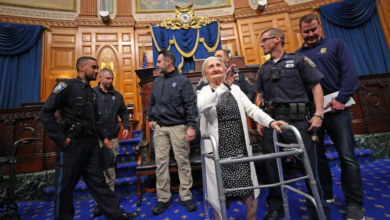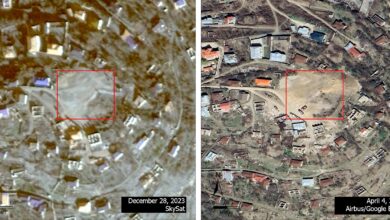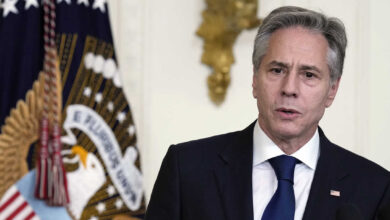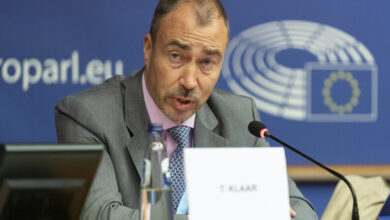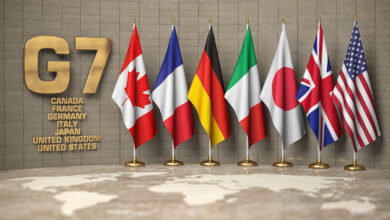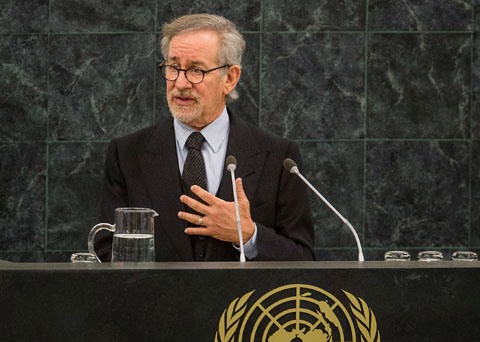
Hollywood film director Steven Spielberg spoke at the United Nations on Monday about the importance of remembering the horrors of the past such as the Holocaust to prevent large-scale atrocities from taking root, the Global Post reports.
At the annual International Holocaust Memorial Day ceremony, the Oscar award winner praised survivors of Nazi German concentration camps for their “undamaged optimism” and their ability to transform “rage and grief into a wellspring of wisdom, progress and justice.”
“The survivors’ powerful determination to contribute to a future without genocides does not come from leaving the Holocaust behind, from escaping history,” he said in the General Assembly hall addressing U.N. officials, diplomats and survivors. “Their determined demand is that we engage fully with history, that the Holocaust remain with us in memory.”
In his speech Spielberg said, ‘’In response to this reality, we expanded the Shoah Foundation’s collection to include testimony from the genocides in Armenia, Cambodia, Rwanda and the Nanjing Massacre and eventually we’ll include testimony from Shreber-neet-suh and Sudan.
I was recently informed by the Foundation staff that survivors of the Rwandan genocide have asked to see Holocaust survivor testimonies because they want to learn how people rebuilt their lives after facing death and losing loved ones. Victims of genocide in the past are now teachers to victims of recent genocide. When I first heard this, I was deeply moved, and I felt glad that our work gathering memories of the Shoah was helping in this unexpected way. But also I became terribly sad.’’
Since 2005, the United Nations has marked the day the Auschwitz-Birkenau camp in Poland was liberated on Jan. 27, 1945 by paying tribute to the 6 million Jews as well as other victims who perished in the camps.
Born a year after World War II ended, Spielberg recalled childhood memories of learning to read numbers from the camp tattoos on the arms of Hungarian survivors who learned English from his grandmother.
The filmmaker was further influenced by meeting other survivors while on the set of “Schindler’s List,” the true story of a German businessman who saved over 1,000 Jews from extermination by having them work at his factory.
After winning seven Oscars for the film in 1994, the director then formed the Survivors of the Shoah Visual History Foundation as a way of permanently recording their testimonies.
Since that time, videographers have captured tales of other survivors of mass atrocities committed in Armenia, Cambodia, Rwanda, as well as the Nanjing Massacre, which took place in 1937 when large-scale rapes and murders were carried out by Japanese troops in China. There are future plans to incorporate more testimonies from survivors of the events in Srebrenica in Bosnia and Herzegovia as well as in Sudan.
“We know that repressing memory, willed forgetting, is perhaps the greatest danger we face as a species,” he said. “Because we’ve been spared, we know that despair is a choice, and remembering is a choice, but if we want to remain fully human we have no choice but to confront and remember the past, to learn, and to act on what we’ve learned.”


